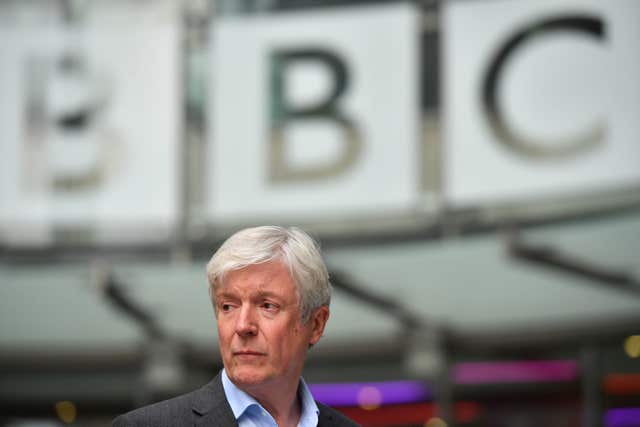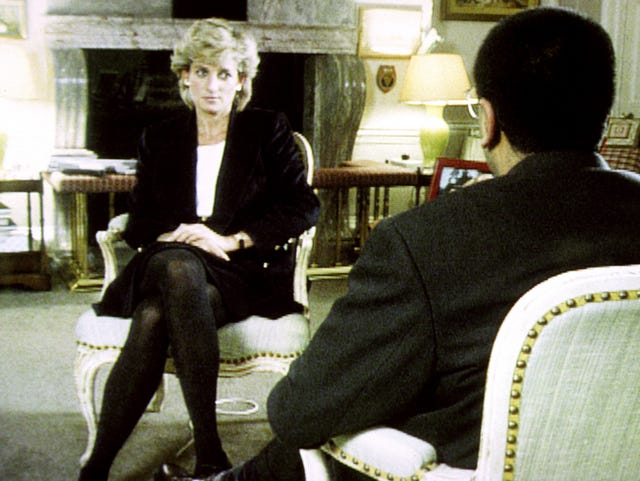A review into the decision to appoint Martin Bashir as religious affairs correspondent at the BBC following his Panorama interview with Diana, Princess of Wales found “no evidence” the journalist was given the job to “contain and/or cover” up the events surrounding the 1995 programme.
The inquiry was set up by the broadcaster following the publication of Lord Dyson’s incendiary report in May, to establish the facts around the decision to allow Bashir to return to the BBC in 2016, and his subsequent move to become religion editor in 2018.
The review, conducted by Ken MacQuarrie, found Lord Tony Hall, the former director-general of the BBC who led the internal investigation into the circumstances surrounding the Panorama interview, did not play a part in the decision to rehire Bashir.

The report concluded the decision to rehire Bashir was “ultimately taken” by then-director of news James Harding and that he did not give “sufficient regard” to the other public controversies the journalist had been involved in.
These included being suspended from ABC News in 2008 after making allegedly sexist remarks during a dinner speech at the Asian American Journalists Association convention in Chicago and criticising US politician Sarah Palin in 2013 for comments she made comparing the Federal debt to slavery.
“Although it is not possible to say whether or not consideration of these matters would have changed the recruitment outcome, I consider that James Harding, as the individual ultimately responsible for the appointment, should have given proper consideration to these matters prior to appointing Martin Bashir,” the document said.
“In my view, this was not done.”
Mr Harding said in a statement: “As I said a few weeks ago, I was in charge of BBC News when we hired Martin Bashir to be religious affairs correspondent.
“The responsibility sits with me. Today’s report shows we chose the person we thought was the best candidate for the job.
“He was appointed after a formal interview process and once references were taken and considered.
“As the report concludes, we didn’t know then what we know now. Of course, if I had known, he wouldn’t have got the job.”

Mr MacQuarrie, the BBC’s former director of nations and regions, concluded that the recruitment process for the position was “targeted at finding the right person for the role”.
The review recognised there were “some shortcomings in the process by which he was re-employed” but said that Bashir had been appointed as his skills and experience were “considered to be the best match to the requirements for the role at that time”.
The review said: “I have found no evidence that Martin Bashir was re-hired to contain and/or cover up the events surrounding the 1995 Panorama programme. In my view, that theory is entirely unfounded.
“As regards the due diligence conducted on Martin Bashir, the actions of the individuals involved in the recruitment and re-grading of Martin Bashir can only properly be judged against the state of the BBC’s corporate understanding as it was in 2016 and not as it stands now in 2021.
“None of the individuals involved in the recruitment of Martin Bashir had knowledge of all of the matters contained in the Dyson Report.
“I have no doubt that if any of the individuals involved in the appointment of Martin Bashir in 2016 had been aware of what is now publicly known as a result of the Dyson Report, Martin Bashir would have never been reappointed to the BBC.”
Diana’s brother, Earl Spencer, responded to the report on Twitter, writing: “It won’t end with this, I promise.”
Responding to the report, chairman of the DCMS Committee Julian Knight said the fact the BBC considered rehiring Bashir when there were doubts about his integrity “stretches incredulity to breaking point.”
He added: “By this point, as the Dyson report concluded, senior members of the BBC knew that Bashir had lied about the use of faked bank statements to gain access to Princess Diana.
“If the BBC considered him ‘unanimously’ the best candidate, where was the due diligence that should have prevented the corporation from rehiring a former member of staff who had not told a very important truth? Where were senior level discussions?
“What is disturbing is that it appeared the BBC wanted to interview Bashir at the outset, regardless of who else applied for the job. And, not only did they re-employ him, they promoted him.
“We look forward to getting answers tomorrow when former director-general Lord Hall comes before our committee along with the former DG Lord Birt, the BBC’s current DG Tim Davie and its chair Richard Sharp.”
Michelle Stanistreet, general secretary of the National Union of Journalists, said: “It is hard to agree with the key finding of this report, that the recruitment process was one designed to find the right person for the role. The ‘shortcomings’ identified rather strike me as evidence of a process fundamentally lacking in integrity.”
She added that, “Question marks over the BBC’s lack of judgment in rehiring Bashir in 2016 are not expunged with this report. How is it plausible that senior BBC executives – steeped in news on a daily basis, responsible for the BBC’s reputation – didn’t consider Bashir’s recent career woes and questionable behaviour in the States worthy of pause for thought?”
The corporation said it had announced a further review on May 24 this year following Lord Dyson’s report, which will look into “the oversight of (the) BBC’s editorial practices and procedures, including the robustness and independence of whistleblowing processes in editorial areas”.
The review is to be undertaken by a panel led by Sir Nicholas Serota and will commence in June 2021, with it expected to conclude in September 2021.




Comments: Our rules
We want our comments to be a lively and valuable part of our community - a place where readers can debate and engage with the most important local issues. The ability to comment on our stories is a privilege, not a right, however, and that privilege may be withdrawn if it is abused or misused.
Please report any comments that break our rules.
Read the rules here